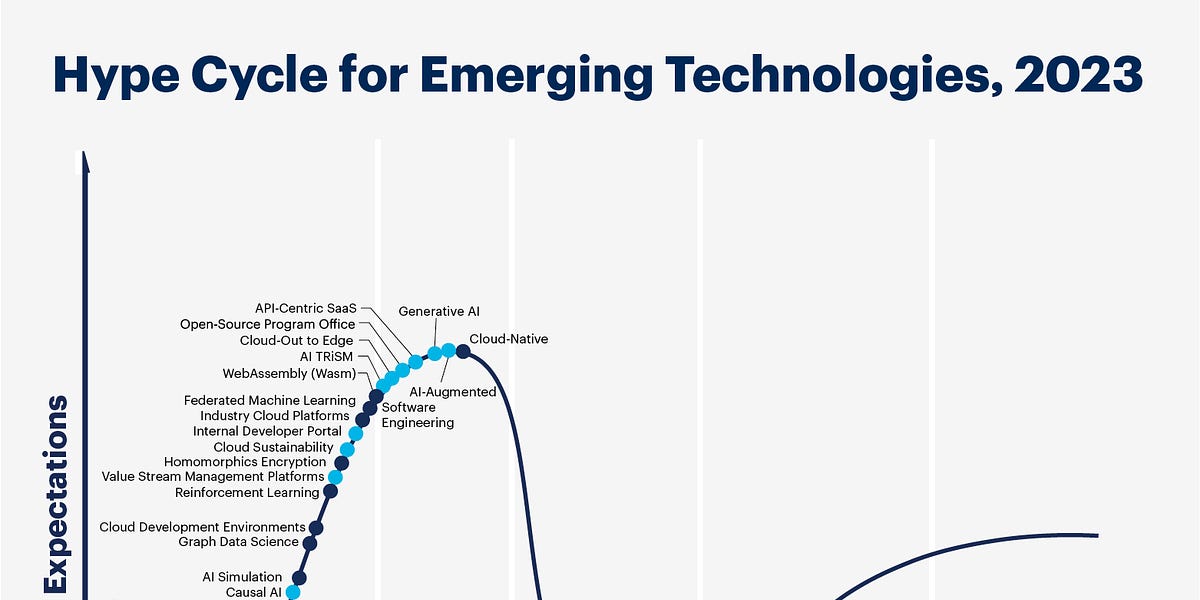GenAI: Hype vs Reality?

🌈 Abstract
The article examines the current state of AI adoption and the widespread interpretation of its potential. It analyzes the quantifiable usage of AI tools like ChatGPT and the anxieties surrounding the future implications of AI progress.
🙋 Q&A
[01] Quantifying AI Adoption
1. What are some key metrics that indicate increased adoption of AI tools like ChatGPT?
- ChatGPT surpassed 1 million users just 5 days after launch and became the fastest app to acquire 100 million users
- Over the past year, ChatGPT and other popular large language models (LLMs) have added tens of millions of users and are being integrated into the workflows and hobbies of everyday consumers
- 22% of survey respondents reported using AI tools like ChatGPT on a weekly or daily basis, which is an astounding figure for such nascent products
2. How does the ease of use of AI tools contribute to their adoption?
- Programs like Perplexity and Claude are functionally similar to search engines, allowing users to simply type a prompt without needing to understand complex technical concepts
- This low barrier to entry has enabled widespread adoption across all age demographics, even among the 65+ age group, as people want to understand the hype around these new AI tools
3. How do industry analysts view the current state of AI adoption?
- In August 2023, research firm Gartner placed Generative AI in the "Peak of Inflated Expectations" segment of its Hype Cycle for Emerging Technologies
- This suggests that the perceived impact of AI is at an all-time high, with the range of future outcomes and timelines being highly unclear
[02] Quantifying AI Anxiety
1. What are some of the common fears and concerns expressed about the societal implications of AI progress?
- Surveys have identified widespread fears that AI systems will lead to job loss, extinction, and social discord
- There is a prevailing belief that AI will make our lives easier, despite the predominant emotions being "caution," "concern," and "skepticism" rather than excitement
2. Why do these anxieties exist despite most people's limited experience with AI tools?
- The public's understanding of AI is largely shaped by media portrayals of malevolent AI actors in popular culture, such as Skynet from The Terminator or Hal 9000 from 2001: A Space Odyssey
- These fictionalized depictions have rendered the recent wave of LLM innovation as prophetic, inducing widespread anxiety about the implications of such rapid progress
3. How do the different connotations of "AI" contribute to the disconnect between current capabilities and future fears?
- "AI" has multiple meanings, one grounded in technological criteria and one related to sociopolitical anxieties
- Personalized recommendations from products like Spotify are not seen as threatening, while ChatGPT is reminiscent of maleficent AI actors, leading to disproportionate fears